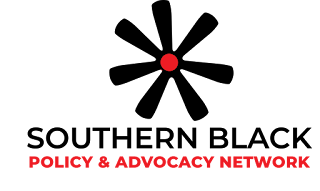By: Venton C. Hill-Jones, Chief Executive Officer, Southern Black Policy & Advocacy Network
It is no secret that Black Americans in the U.S. South lead our nation in diagnoses and deaths caused by HIV, cancer, diabetes, hypertension, obesity, high cholesterol and lack of mental health resources. Knowing this, it came as no surprise that the Black community would also lead the nation per capita in diagnosed and undiagnosed cases of COVID-19, as well as the virus’ mortality rate. According to amfAR, The Foundation for AIDS Research, Black communities are facing a disproportionate impact of COVID-19 in the U.S. South.
In a May 2020 study conducted by amfAR, it was reported that in the United States: “COVID-19 diagnoses and deaths increased in counties with a greater proportion of Black residents. While disproportionately Black counties constitute only 22% percent of U.S. counties, they account for 52% and 58% of COVID-19 cases and deaths, respectively. Ninety-one percent of disproportionately Black counties are located in the Southern U.S.”
During the COVID-19 pandemic, SBPAN has worked to utilize social media and digital engagement (web meetings, virtual conferences, etc.) to continue the dialogue with Black public health and community leaders representing, and serving, these Southern Black communities. Through our engagement, we have found that many leaders feel that, prior to COVID-19 pandemic, conversations and actions surrounding the overarching state of public health in the South were limited. As a result, Black communities living in the U.S. South face a disproportionally high number of health disparities directly linked to the social and economic barriers rooted in the unique history of racism, religion, segregation, and slavery in the U.S. South. Because of this environment, the U.S. South remains the epicenter of health disparities that continue to reduce the morbidity and mortality of Black communities living in this part of the United States.
As we navigate the COVID-19 pandemic, social unrest and the ongoing call for racial equity in the South, we must focus our conversations and mobilization efforts on addressing intersecting epidemics and social challenges. Now is not the time to regress in having open dialogues, showing human solidarity and human perseverance, nor showing collective support for our society. Look at how promptly we bonded together to administer personal prevention essentials (PPE), enacted federal/state legislations and local ordinances to assist families and individuals with food, housing, and supplemental income that have been financially impacted, or ensured everyone that wants to get tested has the unencumbered availability to do so. Now imagine if we utilized those same strategies, focus, and fortitude and applied them to the same public health emergencies that will remain once COVID-19 is gone?
People living with HIV/AIDS in the Black community mirror the same external barriers that require the exact same meaningful impact that we have responded to COVID-19 with. There are basic human right essentials including employment and housing that we need all local municipalities to pass anti-discrimination ordinances against. Only through solidarity and perseverance can we collectively make further progress in addressing health disparities for southern Blacks."
About the Southern Black Policy & Advocacy Network. SBPAN is a non-profit 501(c)(3) organization that was created in 2018 to improve health, social, and economic conditions facing Black communities living in the U.S. South. SBPAN's mission is to improve health outcomes and reduce social, and economic disparities impacting Black communities living in the U.S. South through training, education, advocacy and mobilization. SBPAN is committed to building and strengthening programs and partnerships focused on improving the health and quality of life for diverse populations of Black southern communities in the U.S., specifically those living at the intersection of marginalized Black communities including, but not limited to those who are same gender loving (SGL), lesbian, gay, bisexual, transgender (LGBT), youth, women, and persons over the age of 55. Donate to Southern Black Policy and Advocacy Network.
Disclaimer: Guest blogs do not necessarily reflect the views of the ADAP Advocacy Association, but rather they provide a neutral platform whereby the author serves to promote open, honest discussion about public health-related issues and updates.



No comments:
Post a Comment